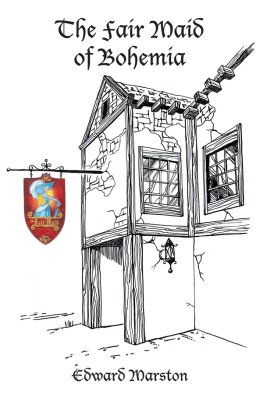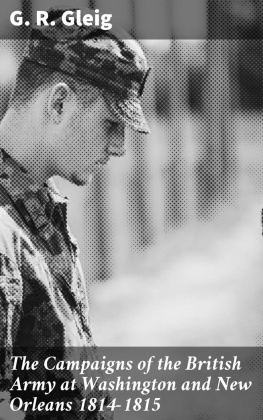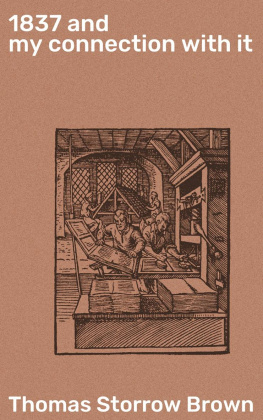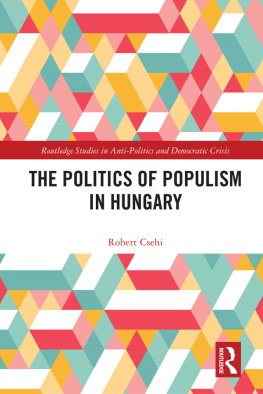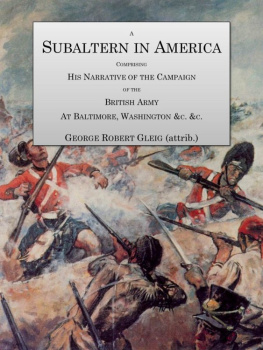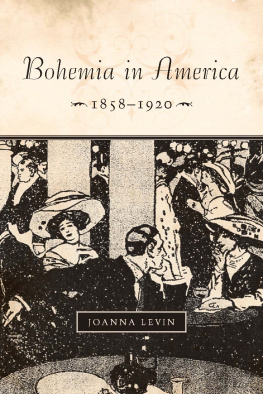G. R. (George Robert) Gleig - Germany, Bohemia, and Hungary, Visited in 1837. Vol. II
Here you can read online G. R. (George Robert) Gleig - Germany, Bohemia, and Hungary, Visited in 1837. Vol. II full text of the book (entire story) in english for free. Download pdf and epub, get meaning, cover and reviews about this ebook. year: 2018, publisher: CreateSpace Independent Publishing Platform, genre: Detective and thriller. Description of the work, (preface) as well as reviews are available. Best literature library LitArk.com created for fans of good reading and offers a wide selection of genres:
Romance novel
Science fiction
Adventure
Detective
Science
History
Home and family
Prose
Art
Politics
Computer
Non-fiction
Religion
Business
Children
Humor
Choose a favorite category and find really read worthwhile books. Enjoy immersion in the world of imagination, feel the emotions of the characters or learn something new for yourself, make an fascinating discovery.

- Book:Germany, Bohemia, and Hungary, Visited in 1837. Vol. II
- Author:
- Publisher:CreateSpace Independent Publishing Platform
- Genre:
- Year:2018
- Rating:4 / 5
- Favourites:Add to favourites
- Your mark:
- 80
- 1
- 2
- 3
- 4
- 5
Germany, Bohemia, and Hungary, Visited in 1837. Vol. II: summary, description and annotation
We offer to read an annotation, description, summary or preface (depends on what the author of the book "Germany, Bohemia, and Hungary, Visited in 1837. Vol. II" wrote himself). If you haven't found the necessary information about the book — write in the comments, we will try to find it.
Germany, Bohemia, and Hungary, Visited in 1837. Vol. II — read online for free the complete book (whole text) full work
Below is the text of the book, divided by pages. System saving the place of the last page read, allows you to conveniently read the book "Germany, Bohemia, and Hungary, Visited in 1837. Vol. II" online for free, without having to search again every time where you left off. Put a bookmark, and you can go to the page where you finished reading at any time.
Font size:
Interval:
Bookmark:

JOHN W. PARKER, WEST STRAND.
| Page |
| Chap. I. The Gulden Krone. Count Thun's Castle and Grounds. Glorious Scenery. The March resumed. Superstitions of the Bohemians not Idolatry. State of Property. Agricultural Population. Kamnitz. The Cow-herds. Stein Jena. Hayde |
| Chap. II. Our Landlady and Washerwoman. The Einsiedlerstein. Its Dungeons and Hall. Its History. Inscription over the Hermit's Grave. Lose our Way. Guided by a Peasant. His Conversation. Mistaken for Italian Musicians. Gabel |
| Chap. III. General Appearance of the Place. The Inn. Ludicrous Mistakes. The Public Room. Astonishment of the People at the sight of Englishmen. The Priests. Scene in the Tap-Room. Kindness of the People. Our Fishing Operations. A Chasse, and a Daylight Ball |
| Chap. IV. Our Landlord becomes our Guide. Peculiar Scenery of this part of Bohemia. A Village Beer-house. Travelling Mechanics. The Torpindas. Toilsome March. Marchovides. Entertainment there |
| Chap. V. March renewed. Scenery more and more grand. A Population of Weavers. Hochstadt. The Iser. Magnificent River, and capital Trouting. Starkenbach. Kindness of the Inhabitants. Carried to the Chancellor's House. Fish the Iser again. The effect of my sport on a Religious Procession. Supper at the High Bailiff's. Game at Chess. Take leave of our kind Hosts with mutual regret |
| Chap. VI. The Elbe, a Mountain-stream. We Fish it. Dine on our Fish in a Village Inn. The Young Torpinda. Arnau. The Franciscan Convent. Troutenau. The Wandering Minstrels. March continued. Fish the River. Village Inn, and account of the Torpindas. First Meeting with these formidable People in a Wood. Another Pedestrian Tourist. Aderspach. Excellent Quarters. Remarkable Rocks. The Minstrels again |
| Chap. VII. Walk to Shatzlar. Magnificent Scenery. Extreme Fatigue. Our Landlord. Early associations awakened by a Scene in the Market-place. Rest for a day. Ascent of Schnee-Koppee. Halt at a Village on the Silesian side |
| Chap. VIII. Warmbrunn. Objects around. Dilemma. Hirschberg. How Travellers may manage when their Purses grow light. Pass for Russians, and derive great benefit from the arrangement. Lang-Wasser. Greiffenberg. The Prussian Landwehr. Golden Traum. Scene in the Village Inn. Bernstadt. Hernhut. The Hernhuters. Agriculture in Bohemia. Schlukenau. Schandau |
| Chap. IX. The Diligence from Dresden to Tplitz. The Field of Kulm. The Battle, and the Monuments that record it |
| Chap. X. Tplitz. Its Gaieties. Journey resumed. First View of Prague. General Character of the City. The Hradschin. Cathedral. University. Historical details connected with it. The Reformation in Bohemia |
| Chap. XI. The Jews' Town. Visits to various Points worth noticing. State of Public Feeling |
| Chap. XII. Quit Prague. Journey to Brnn by Kniggratz. State of the Country. Brnn. Its Public Buildings. Absence of the Moravian Brethren |
| Chap. XIII. Country between Brnn and Vienna. Vienna. Journey to Presburg. Presburg. The Hungarian Constitution |
in 1837.
Font size:
Interval:
Bookmark:
Similar books «Germany, Bohemia, and Hungary, Visited in 1837. Vol. II»
Look at similar books to Germany, Bohemia, and Hungary, Visited in 1837. Vol. II. We have selected literature similar in name and meaning in the hope of providing readers with more options to find new, interesting, not yet read works.
Discussion, reviews of the book Germany, Bohemia, and Hungary, Visited in 1837. Vol. II and just readers' own opinions. Leave your comments, write what you think about the work, its meaning or the main characters. Specify what exactly you liked and what you didn't like, and why you think so.

